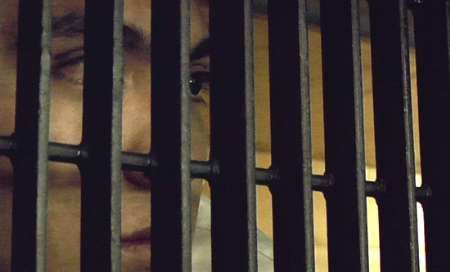A New Low In America: College Athletics Benefiting From Criminals
Opinion

Florida Atlantic University has found itself a very appalling sponsor in the form of a private, for-profit prison operator. And it has found itself, consequently, embroiled in controversy.
The private prison-operating GEO Group, with over 100 facilities across the world, and numerous allegations of corruption and human rights violations under its belt, has agreed to pay $6 million for athletic stadium naming rights at Florida Atlantic University.
And who could blame them? Incarceration rates in America are sky-high and demand for prison beds is hot. What else does a company with billions of dollars in annual revenue do with some extra cash on its balance sheet?
We are long past the days of naming stadiums after nostalgia, geography, or vanity, since they can be the source of big bucks from sponsors. It is one thing for airlines, banks, and even beer companies to emblazon their names on athletic facility walls. But privatized prison operators that profit off taxpayer monies and house lawbreakers? This is a new low, even for our Jersey Shore culture.
And for GEO, it may just be one case where all press isn’t good press. After all, its record isn’t exactly pristine. In addition to civil liberty and human rights groups protesting GEO Group’s practices, it has been cited by state and federal regulators for its sub-standard conditions. One of its prisons was the source of a riot, and in 2009 it got hit with a $42.5 million punitive damages judgment for the death of an inmate.
On the bright side, perhaps fans attending games at FAU will wonder if prison really is that bad and consider GEO’s services.
I can assure them that it is.
I served 19 months in federal prison for a white-collar crime I committed to service a gambling addiction. I also learned quickly that prison wasn’t exclusively a punishment center but a big, big business. The Keefe Group, part of the privately held Taylor Family's Centric Group, has made a fortune with its private label prison commissary and telecommunications business. Others have made vast sums as well, but they have wisely kept a lower profile.
Taxpayers should be wondering if the Treasury Department is paying too much for GEO’s services given the marketing campaign. According to the Bureau of Justice, in 2011 the Bureau of Prisons had a budget of $6.8 billion, an increase of $527 million from the prior year. In addition, the Census Bureau revealed that in 2010 states spent an aggregate amount of $48.5 billion on corrections. This arrangement exemplifies that in this country -- the most criminalized of civilized nations -- crime pays. Nothing says it more like a billboard under the lights.
This distasteful arrangement should cause society to take a closer look at our criminal justice system. Many have called for it to be revamped in numerous ways, including by lowering mandatory minimums, particularly for certain drug crimes.
Unfortunately, and without intervention, the naming rights might be the tip of the iceberg. Could there be a bigger and much more profitable scheme in the works? Maybe next we will see sports teams recruiting straight from the big house. Plaxico Burress and Michael Vick might no longer be anomalies. Taxpayers could even fund prison sports leagues. Lawyers could lobby to represent prisoners for their fair share of the take. The opportunities are endless.
In the 2005 prison football comedy, The Longest Yard, Paul “Wrecking” Crewe said, "Hey, let's have a maniacal pillow fight tonight..." Skitchy Rivers responded, "Yeah, and we can sell it to Pay-Per-View..."
Sadly, that might be next.
Adam B. Resnick is the author of the book “Bust: How I Gambled and Lost a Fortune, Brought Down a Bank – And Lived to Pay for It.” Follow him on Twitter @adambresnick.
© Copyright IBTimes 2024. All rights reserved.











